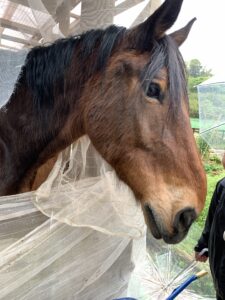This is an old story from China:
There was an old man living in a fort. One day his horse ran off to another country, so his neighbours gathered to console him, but he said “This must bring in luck” and didn’t seem to care.
The horse later came back with a herd of beautiful, healthy horses. Everyone came to congratulate him, but he wasn’t happy as he knew something sad was on the horizon. Later his son broke his leg falling off one of the horses. The grandpa was unperturbed as he anticipated something good after.
Soon after, a war against a neighbouring country broke out. But his son managed to avoid duty in the army as his leg wasn’t yet healed from the accident…

When I first read this story, I was a teenager and I couldn’t understand why the old man had to react “wrong” or counter-intuitive every time. “Why can’t you be happy when you’re meant to be?” The idea of suppressing emotions repelled me: it felt as though taking away all the juice of life, leaving boring and dry pulps.
As I grew up, though, I started to notice the pattern of life: indeed, life was a chain of events which joined one up after a down. And many of these events would turn out to play unexpected roles later in life; judging one event on its own didn’t seem so useful any more. And when something really really bad happened, I myself resorted to the lesson of the old man.
I even started to take emotional precautions when I’m in a joyful state, not to prepare for the next disaster, but to remind myself what or who made it possible for me to be in that space.
It doesn’t seem to take away the joy, if not deepens it.
It’s a kind of idea that I grew to understand and appreciate, like bitter chocolate with 80% cacao, not as sweet as I used to like, but the taste grew in me.

0 Comments